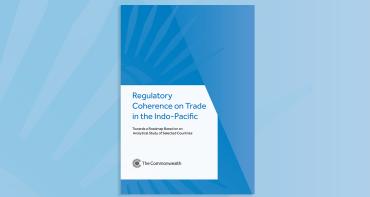“We want the Commonwealth to be an association of authority and impact,” declared the Commonwealth Eminent Persons Group, in an interim statement issued at its third meeting in Malaysia on 26-27 January.
“To meet the challenges of the twenty-first century, the Commonwealth needs to refocus and play to its strengths,” said the group’s chairperson, Tun Abdullah Ahmed Badawi, former Prime Minister of Malaysia.
The group will call on the Commonwealth to show greater leadership in upholding Commonwealth values such as democracy, human rights and the rule of law. It will also recommend that the Commonwealth refocus its efforts on areas where the Commonwealth – with member countries from every ocean and continent and every stage of economic development - can help break deadlocks on major global issues.
“We will be proposing some bold new initiatives to bring meaning to the idea of the Commonwealth in peoples’ everyday lives. And we will be consulting further across the Commonwealth before finalising our report. We want to expand educational, exchange and cultural opportunities for Commonwealth citizens, especially young people.”
The key issues discussed at the meeting included:
- expanding the range of measures available to the Secretary-General and to the Commonwealth Ministerial Action Group, to better respond where Commonwealth values are violated;
- further developing the idea of a Commonwealth Charter to articulate the nature and opportunities for the modern Commonwealth in the twenty-first century;
- developing the idea of a Commonwealth Commissioner on the Rule of Law to advise the Secretary-General and the Commonwealth Ministerial Action Group on serious violations of the Commonwealth’s core values;
- measures to strengthen meaningful engagement between governments and civil society;
- measures to ensure that the Commonwealth Secretariat is more responsive to the needs of its members, is adequately resourced and is capable of attracting the highest quality staff in order to respond to the major global challenges of the day;
- strengthening the co-ordination and effectiveness of Commonwealth organisations and agencies working together;
- strengthening the economic capacity and resilience of small states;
- leveraging the Commonwealth’s influence within other political and economic groupings, such as the G20;
- mechanisms to help Commonwealth associations mobilise effectively around major global issues or situations;
- possible measures to link the Commonwealth’s election observation work with a broader agenda of civic education;
- and measures to improve opportunities and outcomes for young people – both within Commonwealth associations and national governments.
In the course of the third meeting, the Group met with YAB Dato’ Sri Mohd Najib bin Tun Abdul Razak, Prime Minister of Malaysia, and Tun Musa Hitam, former Deputy Prime Minister, Malaysia.
NOTES
The Eminent Persons Group was established by Commonwealth Heads of Government at their summit in November 2009. The Eminent Persons Group has been tasked with developing options for reform to sharpen the impact, strengthen the networks and raise the profile of the Commonwealth.
The Group met at Marlborough House, London, from 19 to 20 July 2010, and from 25 to 26 October. They also met on 26-27 January 2011 in Malaysia. The Group has had three meetings and is scheduled to have its fourth and final meeting on 21-22 March 2011 before reporting to leaders at the Commonwealth Heads of Government Meeting (CHOGM), to take place in Perth in October 2011.
The Group comprises:
• Tun Abdullah Ahmad Badawi (Malaysia, chairperson)
• Dr Emmanuel Akwetey (Ghana)
• Ms Patricia Francis (Jamaica)
• Dr Asma Jahangir (Pakistan)
• Mr Samuel Kavuma (Uganda, Commonwealth Youth Caucus)
• Hon Michael Kirby (Australia)
• Dr Graca Machel (Mozambique)
• Rt Hon Sir Malcolm Rifkind (UK)
• Sir Ronald Sanders (Guyana)
• Senator Hugh Segal (Canada)
• Sir Ieremia Tabai (Kiribati)



